Symposium
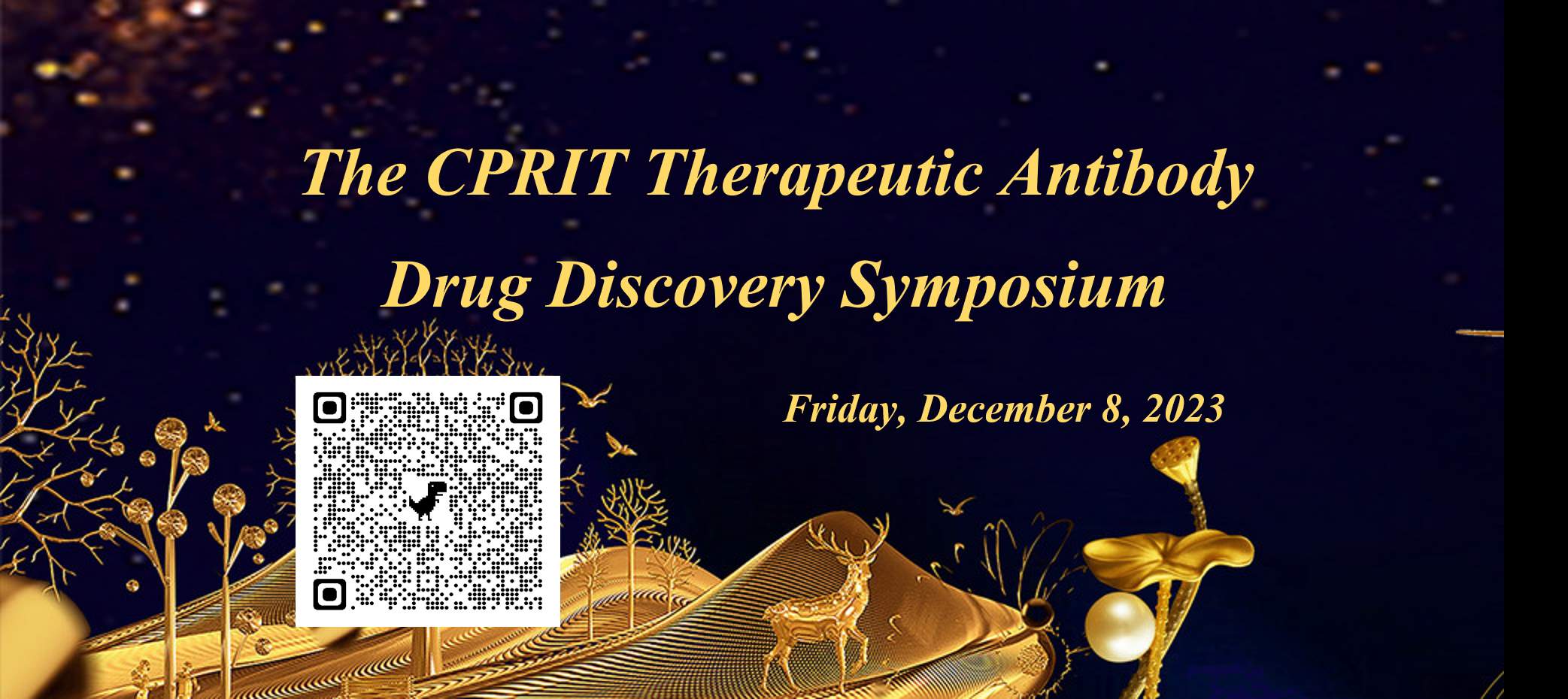
Please click the URL to register, so we can prepare for your arrival. Thanks for your cooperation.
Location: Fayez S.and Susan K. Sarofim Research Building, 1825 Pressler St, Houston,T X
11:30 – 12:45 p.m.
Lunch
12:45 – 1:00 p.m.
Introduction Zhiqiang An, Ph.D. The University of Texas Health Science Center at Houston
1:00 – 1:30 p.m.
SLC family members in cancer immunity and therapy
Weiping Zou, MD, PhD
University of Michigan School of Medicine
1:30 – 2:00 p.m.
Targeting adipocyte-derived factors with monoclonal antibodies
Philipp E. Scherer, PhD
The University of Texas Southwestern Medical Center
2:00 – 2:30 p.m.
Role of chitinase 3-like-1 in hepatocellular carcinoma
Changqing Cynthia Ju, Ph.D.
The University of Texas Health Science Center at Houston
2:30 – 3:00 p.m.
The promise of a novel anti-OSMR antibody for overcoming ovarian cancer growth and metastasis
Pradeep Chaluvally-Raghavan, Ph.D. Medical College of Wisconsin (MCW), Milwaukee
3:00 – 3:45 p.m.
Break
3:45 – 4:15 p.m.
Targeting the tumor microenvironment angiogenesis for ovarian cancer therapy
Anil K. Sood, M.D
UT MD Anderson Cancer Center
4:15 – 4:45 p.m.
Antibody drug conjugates platform
Kyoji Tsuchikama, Ph.D.
The University of Texas Health Science Center at Houston
4:45 – 5:15 p.m
A structure-guided approach to antibody drug design
Kai Xu, Ph.D.
The University of Texas Health Science Center at Houston
5:15 – 5:30 p.m.
Break & Closing Remarks – Dr. Zhiqiang An
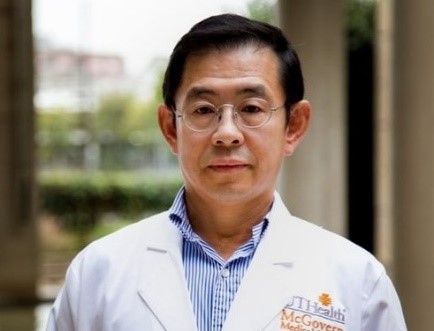
Zhiqiang An, Ph.D.
Professor & Robert Welch Distinguished University Chair in Chemistry Director, the Texas Therapeutics Institute
Vice President, Drug Discovery
The University of Texas Health Science Center at Houston
Dr. Zhiqiang An is Professor of Molecular Medicine, the Robert A. Welch Distinguished University Chair in Chemistry, and Director of the Texas Therapeutics Institute at the University of Texas Health Science Center at Houston. His laboratory focuses on antibody drug resistance mechanisms, biomarkers for therapeutic antibodies, and antibody drug discovery targeting human diseases. During the last five years, more than 10 novel antibody drug leads discovered in his laboratory were licensed to seven biotech companies, and six (6) have advanced to clinical trials. Previously, he served as Chief Scientific Officer at Epitomics, Inc. and was Director of Biologics Research at Merck Research Laboratories. He has authored over 200 journal articles and two books including the award-winning book “Therapeutic Monoclonal Antibodies: from Bench to Clinic”. He is an elected fellow of Society for Industrial Microbiology and Biotechnology (SIMB), the American Academy of Microbiology (ASM), American Association for the Advancement of Science (AAAS), and the National Academy of Inventors (NAI). Dr. An received his Ph.D. degree from the University of Kentucky and his postdoctoral training at the University of Wisconsin-Madison.
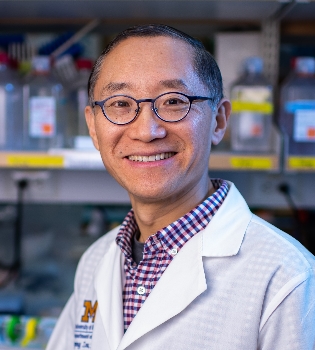 Weiping Zou, MD, PhD
Weiping Zou, MD, PhD
Charles B. de Nancrede Professor
Professor of Pathology, Immunology, Biology, and Surgery
Director, Center of Excellence for Cancer Immunology and Immunotherapy
Co-Director, Cancer Hematopoiesis and Immunology Program
Co-Director, Immunologic Monitoring Core
Co-Director, University of Michigan Surgical Oncology Research Training Program
University of Michigan School of Medicine
Weiping Zou serves as Director of the Michigan Center of Excellence for Cancer Immunology and Immunotherapy. At the national level, he was the AACR Cancer Immunology (CIMM) Chairperson 2019-2020 and has served as the AAI Cancer Immunology Abstract Programming Chair for 4 years. He has been involved in the editorial boards for 8 scientific journals. He is an elected member of AAAS and AAP. He has delivered more than 340 invited lectures at different institutions and conferences
and published nearly 200 articles and book chapters, including 36 articles in Nature, Science, and Cell journal series. His laboratory is one of the most cited research teams in the field of immunology. Their work has been highlighted by many scientific news agencies. “Specific recruitment of regulatory T cells in ovarian carcinoma fosters immune privilege and predicts reduced survival”, an original work on human Tregs, has been cited more than 5,000 times since its publication. Dr. Zou has made seminal contributions to our understanding of immunosuppressive mechanisms and the nature of the immune responses in the tumor microenvironment. His early concept of combinatorial immunotherapeutic strategies has laid the foundation for current cancer immunotherapy and has provided rationales for novel combinations. Dr. Zou directs a T32 NCI program and holds 4-6 large NIH/NCI R01 grants.
 Philipp E. Scherer, PhD
Philipp E. Scherer, PhD
Professor
Gifford O. Touchstone, Jr. and Randolph G. Touchstone Distinguished Chair in Diabetes Research
Touchstone/West Distinguished Chair in Diabetes Research
Director, Touchstone Diabetes Center
The University of Texas Southwestern Medical Center
Philipp Scherer is Professor and Director of the Touchstone Diabetes Center at the University of Texas Southwestern Medical Center in Dallas. He received his Ph.D. degree from the University of Basel, Switzerland, with Jeff Schatz, followed by post-doctoral training the Whitehead Institute at MIT in Cambridge with Harvey Lodish. In 1997, he joined the faculty of the Albert Einstein College of Medicine where he was a Professor for Cell Biology and Medicine. Throughout his career, he has maintained an interest in processes related to cellular and systemic energy homeostasis. During his Ph.D., he identified several components of the mitochondrial protein import machinery. While a post-doc, he identified adiponectin, one of the first secretory factors to be described that almost exclusively originate in adipose tissue and which is currently widely studied by many different research groups.
Current efforts in his laboratory are focused on the identification and physiological characterization of novel proteins that serve as potential links between the adipocyte, liver, the pancreatic beta cell and the processes of whole body energy homeostasis, inflammation, cancer and cardiovascular disease. His research team aims to identify novel targets for pharmacological intervention and to further define the role of adipose tissue as an endocrine organ.
Scherer has been on the faculty of UT Southwestern Medical Center since 2007 as a member of the Departments of Internal Medicine and Cell Biology. He holds the Gifford O. Touchstone Jr. and Randolph G. Touchstone Distinguished Chair in Diabetes Research and is a member of the Simmons Comprehensive Cancer Center. He was awarded the 2015 Banting Medal for Scientific Achievement from the American Diabetes Association (the highest ranked diabetes prize in the world), the 2017 European Association for the Study of Diabetes Novo Nordisk Foundation Diabetes Prize for Excellence (the highest honor for a diabetes researcher in Europe), the 2018 Manpei Suzuki International Prize for Diabetes Research (highest honor in diabetes research in Japan), the 2019 Basic and Translational Science Award from the International Diabetes Federation (IDF) and the 2022 Society for Endocrinology Transatlantic Medal (United Kingdom).
Dr. Scherer has published more than 500 papers in the areas of diabetes, cardiovascular disease and obesity/cancer, has been cited more than 66,000 times and has an h-factor (Thompson-Reuters) of 125. He is amongst the 100 most highly cited researchers in biomedical research from 2009-2021 according to Thompson-Reuters.
Dr. Scherer has trained more than 50 PhD, MD-PhD and post-doctoral scientists in the area of metabolism and nutrition, many of which now hold faculty positions in academia. He has been an integral part of multiple Training Grants at UT Southwestern Medical Center, and he serves as the PI for the Endocrine and Metabolism Training Grant at UTSW. See http://touchstonelabs.org/. He is currently also serving on Council for NIDDK.
 Changqing Cynthia Ju
Changqing Cynthia Ju
Professor and Vice Chair for Research of the Department of Anesthesiology, McGovern Medical School, University of Texas Health Science Center at Houston (UTHealth).
I received my PhD in drug metabolism and toxicology from the University of Toronto, Canada in 1999, followed by postdoctoral training at the National Heart Lung and Blood Institute (NHLBI). I joined the School of Pharmacy, University of Colorado as an Assistant Professor in 2002, and was promote to Associate and Full Professor in 2009 and 2015, respectively.
My research interest is understanding the cellular and molecular mechanisms of acute and chronic liver injuries. My research team has developed strong expertise in studying the role of various innate immune cells, including hepatic macrophages, neutrophils, and eosinophils, in contributing to liver injury as well as promoting tissue repair. Several of our current projects aim at understanding the hepato-protective and tissue reparative functions of eosinophils during ischemia reperfusion liver injury, which occurs often during liver transplantation, surgery, trauma and sepsis. We are also interested in understanding the adaptive responses of innate immune cells to hypoxia and the role of cell-specific hypoxia-inducible factors (HIFs) during acute liver injury caused by ischemia reperfusion and overdose of acetaminophen. Moreover, we are investigating how stromal immune cells influence the progression of hepatocellular carcinoma by using mouse models and target-specific monoclonal antibodies.
I have mentored more than 10 graduate students and 20 post-doctoral trainees and visiting scientists. The majority of my previous trainees are continuing their training in academic or have become principal investigators in academic institutions. I am currently a Principal Investigator of an NIH T32 grant aimed to train physician scientists in the research area of organ injury and perioperative medicine.
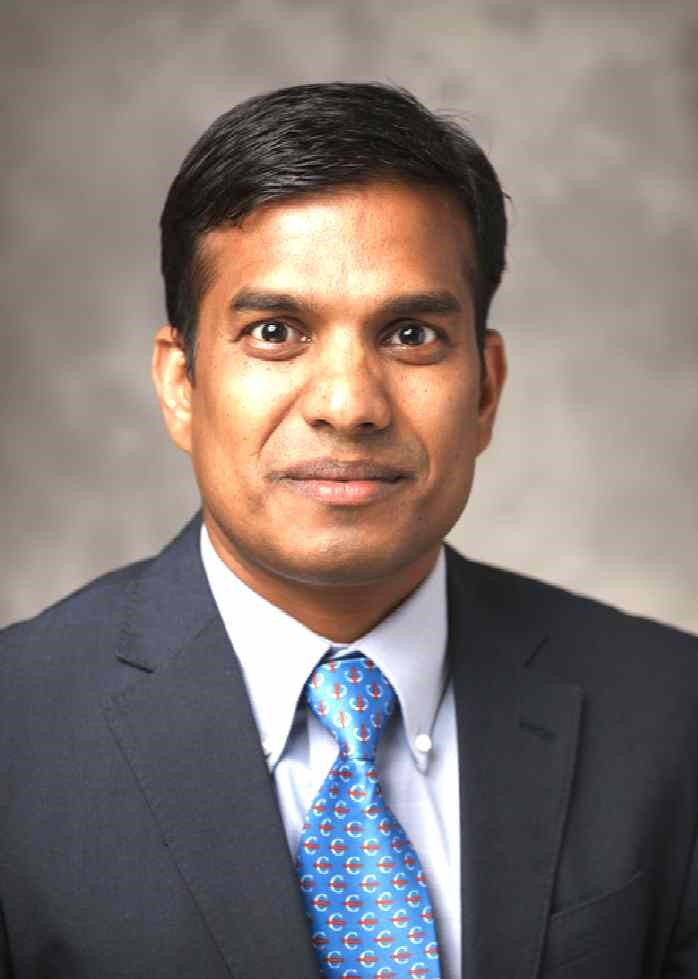 Dr. Pradeep Chaluvally-Raghavan
Dr. Pradeep Chaluvally-Raghavan
Dr. Chaluvally-Raghavan is an Associate Professor in the Department of Obstetrics and Gynecology with an adjunct appointment in the Department of Physiology at the Medical College of Wisconsin (MCW), Milwaukee. He holds the Linda and Herbert Buchsbaum endowed Chair in Gynecologic Oncology Research. Additionally, Dr. Chaluvally-Raghavan serves as the Associate Editor of the nature portfolio journal npj Precision Oncology.
He completed his PhD at the University of Calicut. Following that, in 2007, then pursued postdoctoral research at the Weizmann Institute of Science, Israel, until 2010. Subsequently, he worked as an instructor in the Department of Systems Biology at the MD Anderson Cancer Center until 2016. In 2016, he joined the Medical College of Wisconsin as an Assistant Professor in the Department of Obstetrics and Gynecology, with a secondary appointment in the Department of Physiology, and was later promoted to the rank of Associate Professor in 2020.
Currently, Dr. Chaluvally-Raghavan is actively engaged in researching the role of oncostatin family receptors in cancer. His research team is dedicated to developing and validating agents that can effectively abolish oncogenic signaling mediated through oncostatin receptors.
 Anil K. Sood, M.D.
Anil K. Sood, M.D.
Dr. Anil K. Sood is Professor in the Department of Gynecologic Oncology and Reproductive Medicine at the UT MD Anderson Cancer Center. He is co-director of the Center for RNA Interference and Non-Coding RNA at the M. D. Anderson Cancer Center. He is also Director of the multi-disciplinary Blanton-Davis Ovarian Cancer Research Program and co-leads the Ovarian Cancer Moonshot Program.
Dr. Sood received his medical degree from the University of North Carolina, Chapel Hill. A major and consistent theme of his scientific research has been on understanding human cancer biology and converting lab discoveries into novel therapeutics. His research group has made several seminal research contributions in the fields of tumor microenvironment, nanomedicine, and neuroendocrine effects on cancer biology. Dr. Sood has received recognition for his research accomplishments including the Hunter Award, and the GCF/Claudia Cohen Research Foundation Prize for Outstanding Gynecologic Cancer Researcher. He is an elected member of the American Society for Clinical Investigation (ASCI), the American Association for the Advancement of Science (AAAS), and the Association of American Physicians (AAP). Dr. Sood was selected as an American Cancer Society Research Professor in 2017 and was elected to the National Academy of Medicine (NAM) in 2021.
Kyoji Tsuchikama, Ph.D.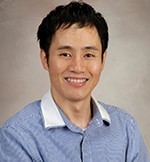
Associate Professor
Texas Therapeutics Institute
The University of Texas Health Science Center at Houston
Dr. Tsuchikama earned a Ph.D. degree in organic chemistry from Waseda University in March 2010 (Advisor: Takanori Shibata, Ph.D.) and completed his postdoctoral work at the interface of chemistry and biology at The Scripps Research Institute in June 2014 (Advisor: Kim D. Janda, Ph.D.). In July 2014, he joined Texas Therapeutics Institute (TTI) in the Brown Foundation Institute of Molecular Medicine (IMM), UTHealth as tenure-track Assistant Professor. He was promoted to Associate Professor with tenure in September 2021. Right after that, he was awarded the Outstanding Academic Investigator Award by the Annual World ADC San Diego, the largest international conference in the field of antibody-drug conjugate (ADC). His long term research goal is to establish chemistry-based technologies to overcome cancer drug resistance and heterogeneity. To this end, his research programs are focused on developing novel linker technologies for generating efficacious and safe ADCs, an emerging class of cancer chemotherapeutics. His group’s achievements include: 1) branched ADC linkers enabling installation of two distinct payload molecules onto a single mAb (termed dual-drug ADC technology), and 2) an enzymatically cleavable ADC linker with excellent stability against various undesired biological degradation events. With these novel technology platforms in hand, his team is generating a variety of ADCs with improved therapeutic index for intractable cancers, such as triple-negative breast cancer and glioblastoma. Their paper on novel dual-drug ADCs published in Nature Communications in 2021 won the Best Preclinical Publication Award by the World ADC San Diego.
 Kai Xu, Ph.D.
Kai Xu, Ph.D.
Associate Professor
Texas Therapeutics Institute
The University of Texas Health Science Center at Houston
Dr. Xu is a dedicated scientist with a distinguished career in infectious disease research. He earned his Ph.D. from Cornell University Weill Medical College and has made significant contributions to structure-based vaccine and antibody therapeutic research during his tenure at the Vaccine Research Center (NIH). His pioneering work includes the development of an innovative HIV fusion peptide vaccine and vaccines and antibody therapies for several other infectious pathogens, such as human parainfluenza viruses, plasmodium, and Henipaviruses. In 2020, he was appointed as a tenure-track assistant professor at Ohio State University, where his research centers on viral entry and immune responses. More recently, Dr. Xu has joined the Texas Therapeutic Institute of the Institute of Molecular Medicine, with the aim of establishing a research program dedicated to the development of vaccine and antibody-based therapeutics. Dr. Xu’s work addresses pressing global health challenges, cementing his role as a significant contributor to the field of infectious disease research.